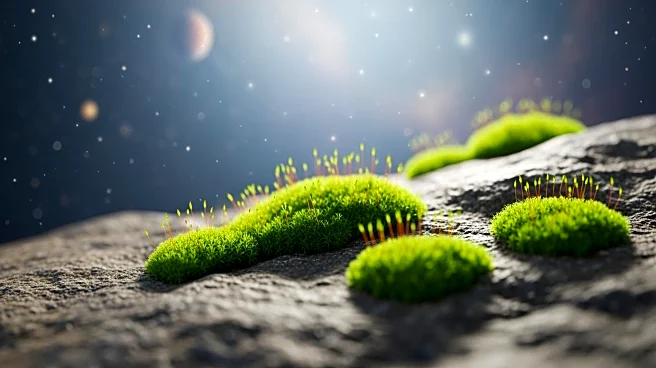What's Happening?
A study published in the journal iScience reveals that moss spores survived nine months attached to the exterior of the International Space Station, enduring the harsh conditions of space. The experiment aimed to test the resilience of moss, an early
land plant, in the vacuum of space. Researchers found that the spores retained their vitality and were capable of reproducing upon returning to Earth. This discovery provides evidence of the intrinsic mechanisms that allow life on Earth to endure space conditions, offering potential applications for developing agricultural systems in extraterrestrial environments.
Why It's Important?
The survival of moss spores in space is significant for the future of space agriculture and the possibility of constructing ecosystems in extraterrestrial environments. Understanding how terrestrial life can endure space conditions may inform the development of sustainable agricultural systems on the Moon and Mars. This research highlights the robustness of life and its potential to adapt to extreme environments, contributing to the broader exploration of life beyond Earth. The findings could lead to innovative approaches for growing plants in space, supporting long-term human missions and colonization efforts.















